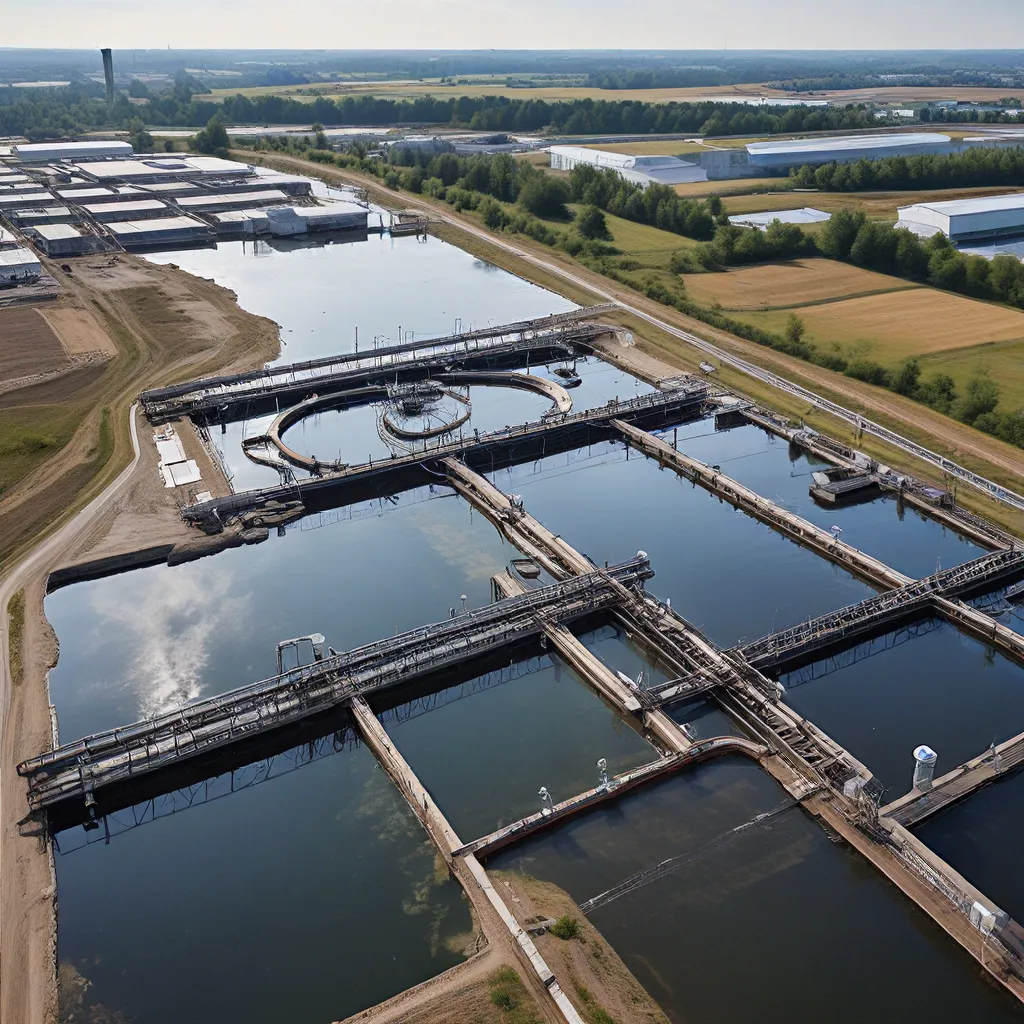
As the world grapples with the pressing challenges of climate change, energy security, and environmental protection, the intersection of wastewater treatment and the hydrogen economy has emerged as a promising frontier for sustainable solutions. In this article, I’ll explore how these two critical domains are converging to unlock a future of greater efficiency, renewable energy, and environmental stewardship.
The Hydrogen Advantage: Powering Wastewater Treatment
At the heart of this transformative opportunity lies the hydrogen economy – a vision for a future where hydrogen replaces fossil fuels as the primary source of energy. Hydrogen, the most abundant element in the universe, has the potential to revolutionize the way we power our world, including the vital process of wastewater treatment.
One of the key advantages of hydrogen is its ability to be generated from a wide range of sources, including renewable resources like biomass and waste – the very materials that are central to wastewater treatment. By harnessing the energy-rich potential of these organic feedstocks, wastewater treatment facilities can become self-sustaining power plants, producing hydrogen as a clean and versatile fuel.
Waste-to-Wealth: Extracting Value from Wastewater
The concept of waste-to-wealth has been gaining traction in the world of wastewater management, and with good reason. Wastewater, once seen as a mere byproduct, is now recognized as a treasure trove of valuable resources waiting to be unlocked.
Through advanced biorefinery technologies, wastewater treatment plants can transform the organic matter and other components of wastewater into a range of valuable products, including biofuels, bioplastics, and biochemicals. By extracting these high-value materials, wastewater treatment facilities can not only offset their own energy and operational costs but also generate additional revenue streams, making them integral players in the circular economy.
Powering the Future: Wastewater-Derived Hydrogen
One of the most promising applications of this waste-to-wealth approach is the production of hydrogen from wastewater. The organic matter present in wastewater can be converted into hydrogen through various processes, such as anaerobic digestion, gasification, and pyrolysis.
This wastewater-derived hydrogen can then be used to power the treatment plant itself, fueling the various processes and equipment required for efficient wastewater management. But the benefits don’t stop there. The surplus hydrogen can be sold or utilized in other sectors, such as transportation, industrial applications, and even residential heating, further enhancing the sustainability and economic viability of wastewater treatment.
Embracing the Circular Economy
The integration of wastewater treatment and the hydrogen economy is a prime example of the circular economy in action. In this model, waste is seen as a valuable resource, and the goal is to keep materials and resources in use for as long as possible, minimizing the environmental impact.
Alpha Wastewater, a leading provider of comprehensive wastewater treatment services, is at the forefront of this circular economy approach. By incorporating hydrogen production and resource recovery technologies into their wastewater treatment processes, they are not only reducing the environmental footprint of their operations but also creating new revenue streams and contributing to the broader sustainable development of their communities.
Overcoming Challenges and Unlocking Opportunities
While the synergy between wastewater treatment and the hydrogen economy holds immense promise, it’s not without its challenges. One of the primary hurdles is the scalability and cost-effectiveness of the technologies involved. Developing and deploying large-scale hydrogen production systems from wastewater sources requires significant investments in research, development, and infrastructure.
However, the Biden-Harris Administration’s Bipartisan Infrastructure Law and its focus on clean energy and sustainability have provided a significant boost to this field. Through funding and policy support, the government is helping to drive innovation, spur private sector involvement, and create the necessary conditions for the widespread adoption of these transformative technologies.
Shaping a Sustainable Future
As we look to the future, the collaboration between wastewater treatment and the hydrogen economy holds the potential to redefine the way we manage our resources and address pressing environmental challenges. By embracing this convergence, we can create a more resilient, efficient, and sustainable infrastructure that not only safeguards our natural environments but also fuels the development of a clean energy economy.
Through continued research, innovative partnerships, and a shared commitment to sustainability, I believe we can unlock the full potential of this exciting intersection and pave the way for a brighter, more prosperous future. The time to act is now, and the rewards of our efforts will be felt for generations to come.